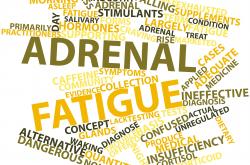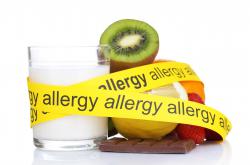How Your Seasonal Allergies May be Causing Fatigue
For millions of people around the world, allergies can cause tremendous misery and discomfort. Allergens can not only provoke symptoms like a runny nose, sore throat, and watery eyes, but severe fatigue as well.
When most people think about seasonal allergies, their mind conjures up images of all the cold-like symptoms we commonly see in allergy-sufferers. And indeed, those symptoms can make any person with allergies dread certain times of the year. There is, however, one other symptom that is really familiar only to those who suffer from this condition: fatigue. Yes, anyone with seasonal or environmental allergies can also suffer from severe exhaustion as well.
What are Allergies?
What we commonly refer to as a seasonal allergy is actually the manifestation of an immune system response to various outside forms of stimuli. Many humans have sensitivities to certain environmental substances, and when these things are introduced into the body, the immune system reacts by identifying them as enemies. That leads it to release something called immunoglobulin, which in turn sends chemicals such as histamine into the person’s nasal passages.
It is these histamines that are responsible for virtually all of the symptoms experienced by allergy sufferers. Histamines tend to cause the nasal passages to be congested – in an effort to prevent further contamination, or to drain. This chemical’s release also leads to the watery eyes, increased mucus, scratchy throat, and runny nose that patients must endure. But allergy symptoms go beyond just those few things, and actually include sinus pressure, headaches and other pain, and fatigue.
How Do Allergies Cause Fatigue?
Many people who take antihistamines and other medications to suppress allergy symptoms assume that it is these medications that cause their fatigue. They are somewhat correct. But there are other factors that contribute as well.
Medications
Many of the more inexpensive allergy solutions can indeed cause drowsiness. These include antihistamine pills and sprays, decongestants, and even many pharmaceutical solutions available only by prescriptions. However, these medications only add to the fatigue. The allergies themselves begin the process of making you tired.
The Immune Response
As the immune system leaps into action to produce the chemicals it needs to fight what it sees as an assault on bodily integrity, it suppresses many of the other body’s systems. After all, it needs all of the energy it can get to marshal a defense against the invading substance. This diversion of energy can result in less energy being available for muscle tissue and other areas of the body. That leaves patients feeling fatigued.
Symptom-Related Fatigue
Given the nature of the symptoms associated with any allergy response, it should come as no surprise to learn that those effects can also increase your fatigue. Since the histamine that is released goes directly to the nasal passages, its effects always end up impacting breathing patterns in one way or another. Whether you become congested, sneeze uncontrollably, or simply suffer a constant nasal drip, your breathing is altered. This affects your oxygen intake, and thus the amount of energy that can be delivered to the cells for mitochondrial conversion to ATP.
Allergy-Related Stress
Finally, there is also the issue of stress. No matter how the effects begin, the end result of any allergen attack is new stress being introduced on the body. And, as with all stress situations, the adrenals have to get involved. That means that cortisol and adrenaline are released in response to the allergen attack. While this can be a good thing – both actually help to minimize any allergic reaction – it can also have unintended side effects.
One of those is a potential depletion of the hormones during periods of prolonged exposure to allergens, which can lead to abnormally low levels of cortisol as the glands fail to keep up with demand. That too enhances the fatigue effect. It’s important to note that this aspect of allergy fatigue is also true in cases involving food sensitivities, allergies to bee stings, and other non-seasonal issues.
How Can You You Manage Allergy Fatigue?
There are several ways to manage seasonal allergy fatigue. These strategies can be roughly divided into four main categories: avoidance, nutritional solutions, immune-based therapies, and symptom management.
Avoidance
The first thing most doctors will tell their allergy patients is to learn to adjust lifestyle to avoid allergens. Sadly, that is often easier to say than to do. Since seasonal allergens tend to be airborne, it can be next to impossible to avoid them all. There are, however, some concrete steps you can take to minimize contact with them:
- As beautiful as most flowers and plants may be, you might have to forgo contact with some of your favorites - especially if pollen is your allergen of choice! Lilacs, daisies, sunflowers, and a host of others can all cause problems for you. The good news is that orchards, iris, periwinkle, and many others can be allergy-friendly.
- Remain indoors as much as possible when the pollen count is high.
- Get a pollen mask for use in gardening, lawn chores, or just to wear when you’re out on high-pollen days.
- Sunglasses and hats can be great for preventing many allergens from nesting in your hair or settling in your eyes.
- Clean your home to rid it of dust, pollen, and mites. It does no good to avoid the great outdoors if your home is already serving as a motel for allergens.
Nutrition
Believe it or not, there are some simple food remedies that have been demonstrated effective against many allergies. These include things like bee pollen, which can be found in most health food stores, as well as manganese and vitamin C. You could also try an herbal remedy like stinging nettle. Many of these substances act in the same manner as antihistamines.
Immune-Based Therapy
Immunotherapy is a technique designed to enhance the body’s resistance to the allergens that provoke an allergic response. This is accomplished with injections of the allergens – in minute quantities, of course –over time, to teach your body that the substance is not actually harmful. While it is not always one hundred percent effective in all cases, it does have a proven track record of success for many patients.
Symptom Management
Symptom management includes all those things that can suppress the effects of an allergic reaction. For most people, that suppression involves antihistamines, saline sprays to keep the nasal passages clear, and even breathing strips. However, beyond those techniques there are also some other critical areas you should focus on to deal with symptoms:
- Reduce stress to avoid aggravating your symptoms.
- Get more sleep. When you’re fatigued, make sure that you receive the rest you need.
- Continue to remain as active as possible. That will help to keep the blood flowing and improve respiration.
In the end, recognize that allergy fatigue is not a permanent condition. As annoying and inconvenient as it might be, it still remains one of those issues that can be managed with the right approach. So, if you suspect that you are suffering from seasonal allergy fatigue, take the first step and get tested to see what is causing your reaction. Once you’ve identified that cause, you can develop the strategy necessary for effective management of the problem.
You might also be interested in:
- Do Allergies Cause Constant Fatigue? http://www.everydayhealth.com/allergies/specialists/do-allergies-cause-constant-fatigue.aspx
- The Link Between Allergies and Exhaustion. http://www.healthguidance.org/entry/15716/1/The-Link-Between-Allergies-and-Exhaustion.html
- Allergy-Season Survival Tips. http://www.doctoroz.com/article/allergy-season-survival-tips
- Molds, mites and pollens: Common causes of allergic fatigue. http://drhoffman.com/article/molds-mites-and-pollens-common-causes-of-allergic-fatigue-2/
- Can Seasonal Allergies Make You Sleepy? http://www.livestrong.com/article/539552-can-seasonal-allergies-make-you-sleepy/
- Sleep & Fatigue: Your Allergies May Be A Factor. http://www.natlallergy.com/learning/allergy-induced-fatigue-and-sleep-problems/



















Leave a comment